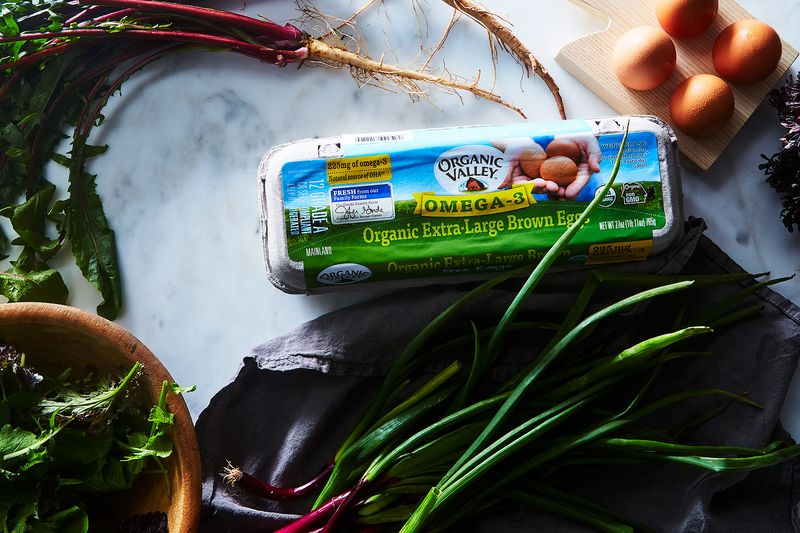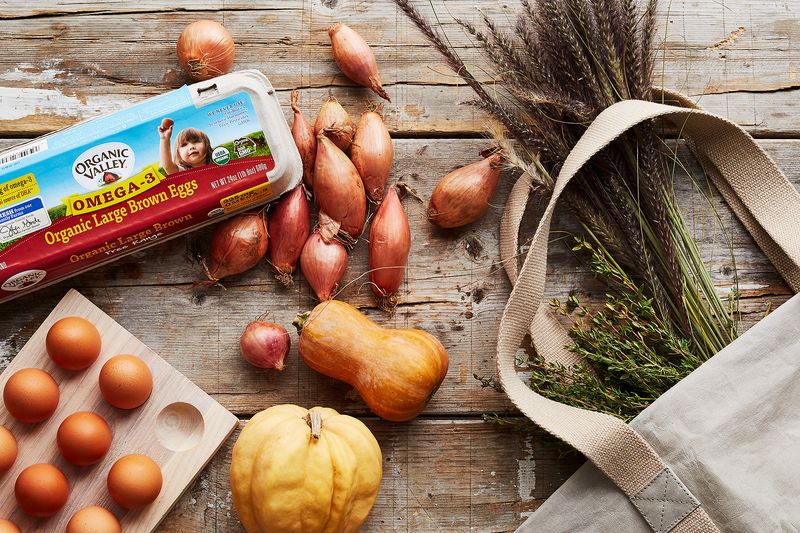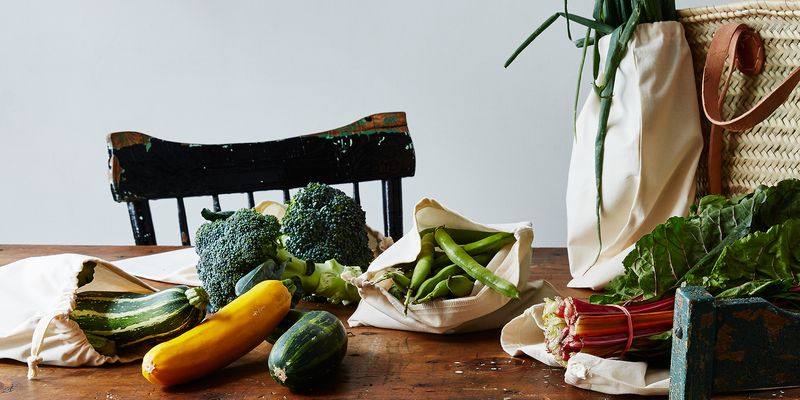In an age of ever-expanding, boundary-pushing innovations in food, reliable information is more vital than ever. Keeping in mind the timeless wisdom of previous generations, we’re exploring the exciting work by research scientists and entrepreneurs in the field, and have partnered with Organic Valley to bring you stories from the front lines of the food system.
In the mid-1990s, Kimbal Musk jumped feet first into what was, at the time, an emerging field: the internet. Over the better part of the next decade he (along with his Tesla-founding brother, Elon) quickly climbed the technological ladder, launching or investing in multiple million- and billion-dollar businesses, including Zip2 and X.com, which merged with PayPal and was acquired by eBay.

Photo by Julia Gartland
But in 2004, Musk brought his entrepreneurial spirit to another nascent field. Inspired by the farm-to-table movement, he co-founded The Kitchen, a pioneering restaurant in Colorado, serving seasonal, contemporary American food, and using locally grown ingredients. The Kitchen’s guiding philosophy of serving sustainably grown local food can be traced to the 1960’s “back-to-the-land” counterculture movement—a notion that was re-popularized in the mid-aughts with books like Michael Pollan’s The Omnivore’s Dilemma.
Pollan introduced a new generation of eaters to “real” food, and laid out the major problems of the industrial food system: snowballing rates of obesity, diabetes, and heart diseases; fertilizer runoff creating large-scale “deadzones” in America’s waterways; animal mistreatment; and the release of carbon dioxide, methane, and other greenhouse gasses, to name a few. And Musk is now the carrying the baton forward, approaching these issues in a way that’s anything but retro.

by Leah Koenig
So why is a tech entrepreneur interested in these issues? Musk believes the country and the world are poised to scale the “real food” movement up in a big way. Beginning from the premise that “food is the new internet,” Musk sees the potential for a radical reimagining of the American food system that is as wide open as the the internet was in the 1990s. That means lots of opportunities for tech- and entrepreneurially minded people to make a difference in the way we grow and consume food—specifically by investing in “real food” opportunities. As he pointed out in a Tedx talk in 2015, “People do not want industrial food anymore. McDonald’s stores are closing by the hundreds in the U.S. Microwave sales are shrinking…soda sales have dropped for the 10th year in a row.”
By its very nature, of course, agriculture moves at a much slower pace than the internet. There are fields to plant and tend, inches of rainfall and hungry insects to fret over, and harvesting that arrives in its own sweet time. But Musk believes there are an infinite number of ways to rethink our current agricultural models to usher in a new food era.
Now is the time, he said, for entrepreneurs—in partnership with farmers and food producers—to find creative ways to bridge the gap between supply and consumer demand for “real food.” The global food market is currently valued at $4.8 trillion, compared to $400 billion for the global software market. “If you think about all your tech friends that have made lots of money on the internet, multiply that by 10 and that’s the opportunity for real food,” he said. Though we may not all have mega-rich tech entrepreneur friends like Musk, we get his point: there is a lot of innovation (and a lot of money) to be made by investing in how we produce, distribute, and eat food.

by Valerio Farris
Musk is, not surprisingly, involved in a number of different innovative agriculture and food-related initiatives. He has thrown his support behind farmers in Wilson, Arkansas, who are converting thousands of acres formerly devoted to industrial cotton into organic farming fields. He works with the Earth imaging company Planet Labs to track the changing biomass of farmers’ fields, to allow them to see which areas are ripe for harvest. He sits on the board of directors at Chipotle which has positioned itself as an ethically minded (no GMOs, pasture-raised animals) fast casual restaurant.
Another example, an organization called Square Roots that Musk co-founded, combines urban agriculture and technology while tapping into a new generation of farming entrepreneurs. Based in Brooklyn, a team of young farmers grow leafy greens like kale, arugula, mustard greens, and spinach inside recycled shipping containers. The farm system is hydroponic, pesticide-free, and water efficient, and produces hundreds of pounds of produce each week that get distributed to individual customers and restaurants.
Meanwhile, the farmers are part of a 13-month program that includes skill-based training, professional development, and experiential learning in farming, business, community building, and leadership. When they leave Square Roots, they take everything they learned with them and, in turn, help to spread the movement further. As America’s conventional farming population continues to rapidly age, bringing young, enthusiastic people into the world of food and farming will be critically important.

by Karen Lo
Last summer, Musk wrote, “Our goal is to enable a whole new generation of real food entrepreneurs, ready to build thriving, responsible businesses.” The hydroponic greens, in other words, are just the beginning.
Of course, the answer to our country and world’s food system challenges cannot be solved by a handful of shipping containers in Brooklyn. But for Musk and his colleagues, programs like these—ones that engage young entrepreneurs in food production—are nothing short of ground-breaking. Taken in aggregate with hundreds of other organizations and initiatives, they can make real, lasting changes that will be tastier on our plates and lifesaving for our planet.
In an age of ever-expanding, boundary-pushing innovations in food, reliable information is more vital than ever. Keeping in mind the timeless wisdom of previous generations, we’re exploring the exciting work by research scientists and entrepreneurs in the field, and have partnered with Organic Valley to bring you stories from the front lines of the food system.
(via Food52)






